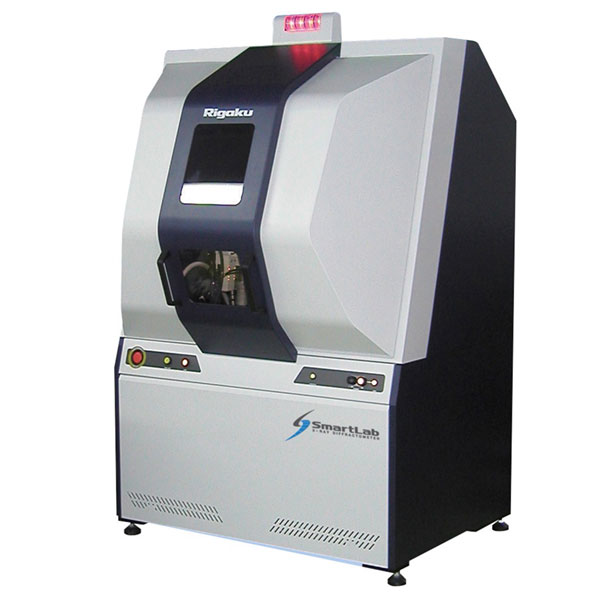AXT have recently completed the installation and commissioning of Australia’s highest powered X-ray diffractometer (XRD) at the Centre for Microscopy and Microanalysis (CMM) at The University of Queensland. The Rigaku SmartLab features a 9kW rotating anode X-ray source and the system has been configured for thin film analysis with Rigaku’s unique in-plane hardware.

This instrument is truly world-class and will ensure that Australian research is able to keep pace with other leading research institutions around the world. The X-ray flux is second only to a synchrotron. It will enable high-sensitivity measurements to be achieved, making detection of trace phases and ultra-thin films possible, while at the same time increasing throughput and speeding up research.
The unique in-plane arm allows detailed studies to be carried out using data collected perpendicular to the sample surface. This ability is of great relevance to thin film analysis, as thin films and coatings are often highly oriented due to the manner in which they are deposited or grown. This opens the door to perfect pole figure determination which would not otherwise be possible as well as sophisticated orientation studies that would be extremely time-consuming using a more conventional goniometer. Coupled with the SmartLab’s hardware that maintains the sample in the horizontal plane and high X-ray flux, this makes the ideal combination for thin film analysis.
The SmartLab is also the perfect partner for high-end research. Once installed it requires little maintenance and can be readily re-configured to perform a range of differing measurements. Its user-friendly guidance software holds the operators hand and walks them through any hardware changes. Smart components that the software can identify ensure configuration changes are made correctly. Smart cabling and Rigaku’s patented auto align functionality are additional features that make the system suitable for use by non-experts, maximising measurement time and minimising the time required for training.
The Guidance software also helps optimise experimental parameters. It will help The University of Queensland researchers perform a range of thin film measurements such as:
- Out-of-plane diffraction
- High-resolution XRD
- In-plane XRD
- X-Ray Reflection (XRR)
- Small Angle X-Ray Scattering (SAXS)
- Pole figures
- Rocking curves
While the diffractometer has been designed for thin film diffraction measurements, it can also be easily configured to analyse bulk materials such as powders and solids and has the ability to carry out spatially-resolved (micro-) diffraction and in-situ temperature studies. Additional flexibility is possible with the addition of the battery cell attachment, giving UQ researchers access to a state-of-the-art instrument. There are also a host of other attachments available that can be added at a later date that provide even further levels of versatility. In combination with the SmartLab’s high flux, this system provides perhaps the most futureproof solution available on the market today.
Dr. Kevin Jack, the Acting Director of the CMM said of the installation of the SmartLab, “we are very excited about this new acquisition. It makes an excellent addition to the analytical capabilities of the centre and will be extremely beneficial to our researchers who are developing materials for a range of applications such as solar cells, electronic devices, membranes, fuel cells, semiconductors and biomaterials. We have a number of users queuing up to use it already.”
The system commissioning coincided with thin film XRD seminars presented by Rigaku’s thin film expert Shintaro Kobayashi. Successful seminars were held in Melbourne at Swinburne University and Sydney at the University of New South Wales, before the main event at the University of Queensland that included live demonstrations of the SmartLab’s functionality and capabilities.
Rigaku is represented in Australia and New Zealand by AXT who provide sales, service and technical assistance with product lines including ray diffraction, X-Ray Fluorescence (XRF), radiographic non-destructive testing (NDT), thermal analysis and computed tomography (CT), as well as the Rigaku Oxford Diffraction of single crystal diffractometers.
